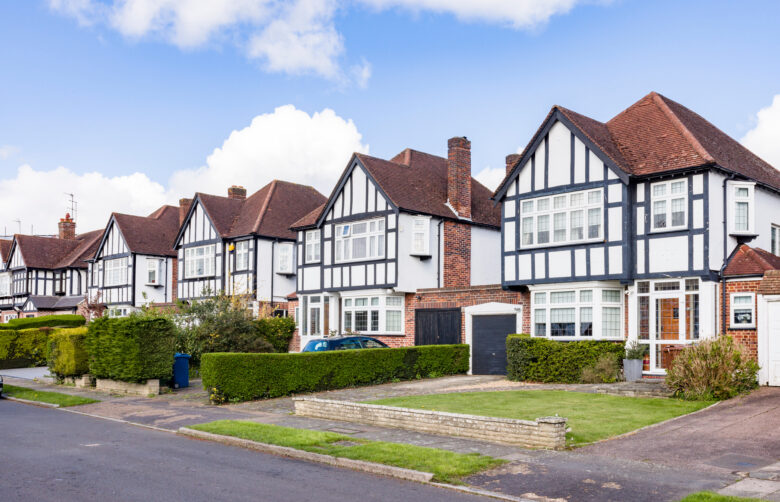
What Factors Affect Your Property Valuation?
Understanding what influences your property valuation is essential whether you’re buying, selling, or simply seeking to assess the value of your home. The process of property valuation involves a professional assessment of the market worth of your property at a given time, conducted by experts such as a RICS Chartered Surveyor.
Several factors come into play during this valuation, from the location and condition of the building to external influences such as the local real estate market. This article provides a detailed look at the various elements that impact property valuation and answers the most frequently asked questions to give you a comprehensive guide.
Key Factors Affecting Property Valuation
Location The location of your property is arguably the most important factor in determining its value. Properties situated in desirable neighbourhoods—those with access to good schools, low crime rates, convenient transportation links, and nearby amenities—tend to command higher prices. On the other hand, properties in less sought-after areas or those experiencing urban decline may have lower values.
Size and Usable Space The size of a property, measured in square footage, is a significant determinant of value. Larger properties typically attract higher prices. More importantly, it’s not just about size but usable space—how the interior space is distributed. Buyers and valuers look at how efficiently the space is organised and whether it can be easily adapted to suit various living needs.
Property Condition The general condition of the property—both structural and cosmetic—can have a significant impact on its valuation. A property in good repair, with no major structural issues such as subsidence or dampness, will be valued higher than a home requiring extensive renovations. Building surveys are crucial here, as they uncover hidden issues like roof problems, poor insulation, or faulty wiring that may affect the value.
Age and Character of the Building Older properties can either boost or detract from a property’s valuation depending on the state of preservation and historical significance. Well-maintained period homes often fetch higher prices due to their architectural features and character. However, outdated systems (plumbing, electrical) or preservation constraints might negatively impact the valuation.
Local Market Conditions Local housing market conditions play a major role in the valuation process. In a “seller’s market,” where demand for housing exceeds supply, property values tend to rise. Conversely, in a “buyer’s market,” where there are more homes for sale than buyers, prices tend to fall. Regional market trends and economic factors, such as employment rates and local infrastructure development, can also influence a property’s value.
Planning and Development Potential Properties with potential for future development or extensions, such as adding a new room, converting a loft, or building an outdoor structure, can see increased valuations.
Curb Appeal First impressions matter, and curb appeal, how a property looks from the outside affects a buyer’s willingness to pay a higher price. Well-maintained gardens, modern windows and doors, and a fresh coat of paint can all improve the appeal of a property. The property’s overall aesthetic and how it fits in with the surrounding area is often a factor surveyors consider during valuation.
Energy Efficiency With the rise in environmental consciousness, energy-efficient properties are becoming increasingly valuable. Properties that are well-insulated and equipped with modern heating systems, double glazing, and energy-efficient appliances often receive a boost in valuation due to the lower ongoing costs for the homeowner.
Proximity to Transport Links and Amenities Homes that are well-connected to transportation hubs such as train stations, motorways, or bus routes generally attract higher valuations. Additionally, proximity to local amenities such as supermarkets, parks, and healthcare facilities plays a part in influencing the overall appeal of the property.
Flood Risk and Environmental Factors A property’s location relative to flood plains or other environmental risks like landslides, subsidence, or pollution zones can detract from its value. Properties in areas prone to flooding or situated in regions with environmental challenges often have lower valuations due to increased insurance costs and potential damage.
How Building Surveys Impact Property Valuation
A building survey, especially one conducted by a RICS Chartered Surveyor, plays an integral role in the valuation process. These surveys provide detailed insights into the structural integrity and condition of the property, identifying potential issues such as damp, rot, subsidence, or faulty roofing.
Surveyors look for problems that might not be visible to the untrained eye but could significantly lower the property’s market value or require costly repairs. Buyers often use building surveys to negotiate the asking price based on repair costs revealed by the survey. Thus, a clean survey with minimal issues will support a higher valuation, while a report with significant faults will likely result in a reduced valuation.
You can find out more about our building surveys here.
Frequently Asked Questions (FAQs)
What is a property valuation?
A property valuation is a formal assessment of a property’s worth at a particular point in time. It is conducted by professionals, such as a RICS Chartered Surveyor, who evaluate various factors like location, condition, and local market trends to provide an accurate value.
How do I prepare my property for a valuation?
To prepare for a property valuation, ensure that your home is well-presented. Make necessary repairs, and highlight any recent improvements or renovations you’ve made, such as energy-efficient upgrades. Also, have documentation related to building permits or planning permissions ready.
What is the difference between a property valuation and a building survey?
A property valuation estimates the market worth of your property. A building survey, on the other hand, is a more detailed examination of the property’s physical condition, highlighting any defects or issues that may need attention.
Does the property’s energy efficiency rating affect its valuation?
Yes, a property’s energy efficiency rating can impact its valuation. With growing concerns about climate change and carbon emissions, especially in the UK, many people seek eco-friendly homes. Therefore energy-efficient homes are more attractive to buyers because they have lower running costs. Upgrades like double glazing, solar panels, insulation, and energy-efficient boilers can raise a property’s value.
If energy-efficient upgrades are already installed, new homeowners avoid installation costs and can immediately benefit from savings. Additionally, the new UK government has committed to making sure homes in the private rented sector meet minimum energy efficiency standards by 2030, which could potentially make homes that don’t meet this standard less valuable.
Can the property’s value be negatively affected by local development?
Yes, large developments such as new motorways, or high-density housing can either positively or negatively affect property valuations depending on how they alter the character of the neighbourhood or affect local congestion and noise levels.
Is it necessary to have a building survey before selling?
While building surveys are typically associated with buyers, having one before selling can greatly benefit sellers as well. A pre-sale survey gives you an accurate valuation of your property, helping you market it appropriately and ensuring you reach the right buyers. It also allows you to describe the property more accurately, especially if it hasn’t been surveyed for a long time, by providing precise details on aspects like road access, services, and measurements. Additionally, a survey can identify potential issues early, giving you the opportunity to address them and avoid surprises that might deter buyers.
This proactive approach not only boosts buyer confidence by demonstrating that there are no major problems but also helps facilitate a smooth, stress-free sale, reducing the likelihood of delays or renegotiations. Furthermore, you can highlight the potential for property modifications through viability reports, which may attract more interest.
Overall, getting a survey before selling helps you prepare your property for the market, ultimately maximising its value and ensuring a successful sale.
Conclusion
Property valuation is a multi-faceted process that depends on numerous factors, from the property’s physical attributes to external market forces. While some elements, such as location and local market conditions, are out of a homeowner’s control, improvements to the property’s condition, energy efficiency, and curb appeal can help increase its value. Engaging a RICS chartered surveyor for both valuation and building surveys ensures a professional and detailed analysis, allowing you to make informed decisions when buying, selling, or investing in real estate.
For expert advice and assistance or to request a quote, reach out to us today. Our team is ready to support you, get in touch with us now.

